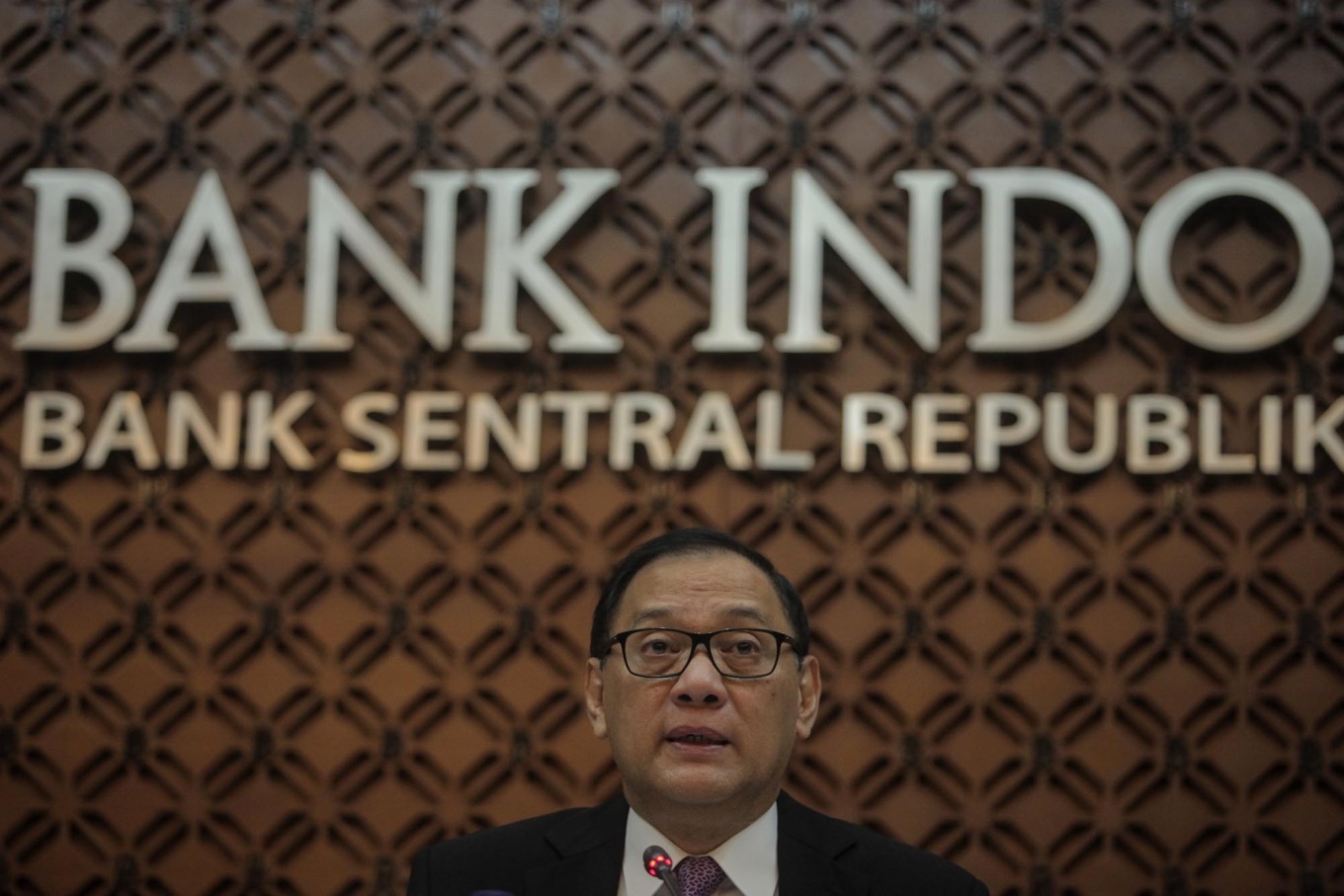Evolution not revolution seen in Asia's central banker reshuffle
Change Size
 Bank Indonesia Governor Agus Martowardojo (Antara/Muhammad Adimaja)
Bank Indonesia Governor Agus Martowardojo (Antara/Muhammad Adimaja)
A
sia’s biggest economies are set to change or reappoint their central bank chiefs in the coming months, in what’s shaping up as a shift in personnel rather than policy.
China, Japan, Korea, Indonesia, Taiwan and New Zealand are all poised to announce new leadership or reappoint their exiting heads. They form part of the regional export powerhouse that’s forecast by the International Monetary Fund to make up almost two thirds of global growth this year.
The backdrop: Change atop the Federal Reserve and a world inching toward tighter monetary policy. That trend could land in Asia soon, with South Korea forecast by some economists to raise benchmark interest rates as soon as next week.
Yet the overarching policy outlook in Asia isn’t tipped to change along with its personalities. China’s next central bank chief will have to take instruction from the nation’s cabinet, which is intent on keeping cash flowing to the real economy even as it tightens the screws on riskier lending. In Japan, Haruhiko Kuroda is seen as likely to stay in his post, and even if he were to opt for retirement, few expect a hawk would take over.
"Policy continuity will likely be the overriding factor in selecting the new Northeast Asian central bank leadership," said Rajiv Biswas, Asia-Pacific chief economist for IHS Markit in Singapore.
Here’s a look at the slate of positions up for grabs:
China
In office since 2002, PBOC Governor Zhou Xiaochuan is the longest serving central bank governor in the Group of 20 economies. There isn’t much transparency around when, or if, Zhou will retire, but he has recently signaled publicly that he may depart "soon." Whoever takes over will have to rein in risky lending and surging debt without hurting the wider economy too much. There is also a full reform agenda that covers everything from opening up China’s financial markets to managing the yuan’s growing pains.
Japan
Kuroda, 73, was appointed in March 2013 and his five-year term ends in April 2018. While Kuroda remains the leading contender for the role, according to a Bloomberg survey, he has declined to comment publicly on his intentions. The dovish Kuroda has demonstrated his willingness for bold policy moves since taking office. If appointed for a second term, that would be a first since 1956. Prime Minister Shinzo Abe will make the call, which is subject to confirmation by parliament. At the same time, the terms of two BOJ deputies also come up in March, meaning even if Kuroda stays there’s scope for a reshuffle.
South Korea
Bank of Korea Governor Lee Ju-yeol’s four-year term ends on March 31, 2018. While the law allows the governor to serve a second term, nobody has done so since the 1970s. Increasing the odds against a second term is the fact that Lee was appointed by former President Park Geun-hye, not the current president. Although considered a hawk, Lee cut interest rates to a record low 1.25 percent. Since June, the BOK has signaled the next policy change would be a hike, which analysts say could come this month after positive growth and inflation figures.
Taiwan
For the first time in two decades, Taiwan is searching for a new central bank governor. Deputy Yang Chin-long is the leading contender to succeed Perng Fai-nan after his term ends in February, according to a recent survey of economists by Bloomberg. With growth forecast to keep pace and inflation remaining benign in 2018, a leadership transition isn’t seen as reshaping the policy outlook. Economists forecast modest tightening next year.
Indonesia
Bank of Indonesia Governor Agus Martowardojo’s five-year term ends in May. The 61-year-old former finance minister’s tenure began as the taper tantrum kicked off in 2013; now he confronts policy normalization in the U.S. and elsewhere that again raises the prospect of capital flight. Agus has managed to boost the central bank’s reputation through a greater level of communication with the market -- a vital reform considering he has overseen eight rate cuts since the beginning of last year. A governor can have a maximum two terms.
New Zealand
At the Reserve Bank of New Zealand, a successor to Graeme Wheeler is due to be appointed, with the incoming governor set to take over from caretaker Grant Spencer in March. In contrast to others on this list, whoever takes the reins will manage a period of change. The new Labour-led government wants to shake up the RBNZ’s mandate by adding employment to its existing focus on inflation. It also wants to add three external members to the RBNZ’s rate setting committee to increase the diversity of views on the economy. A non-voting Treasury official would also attend meetings.









